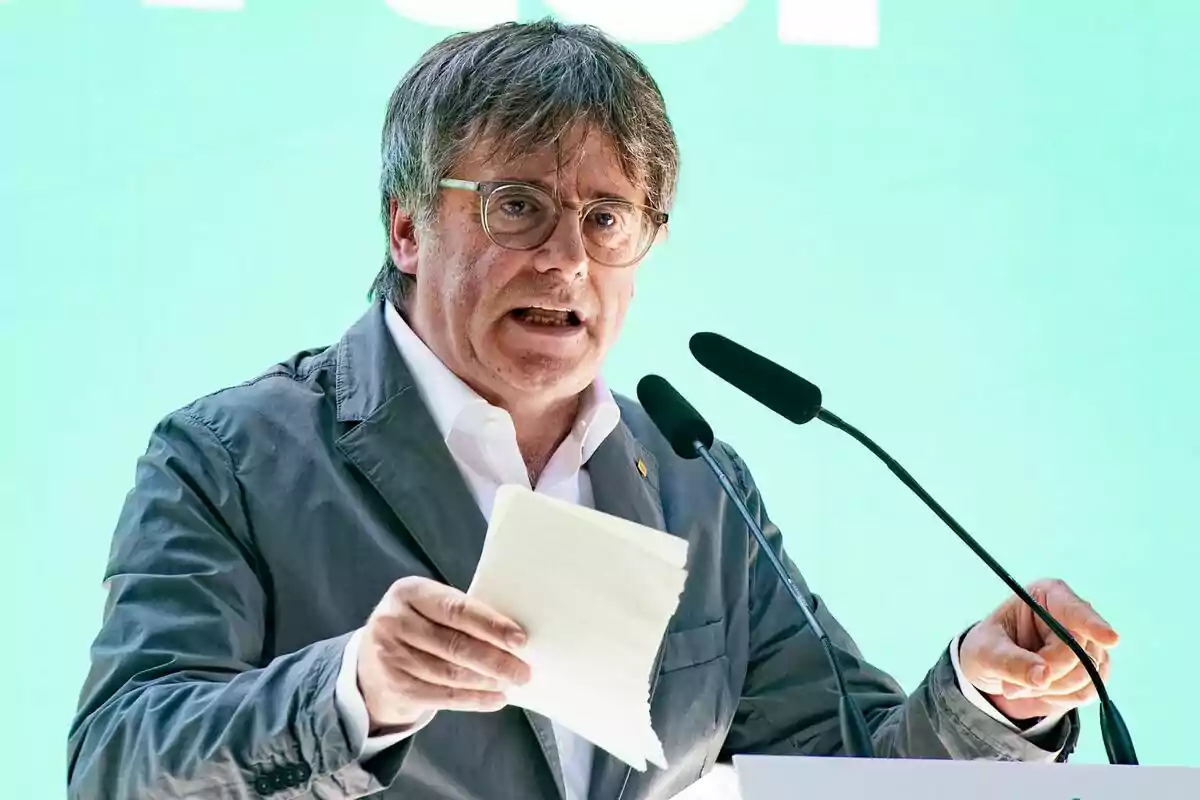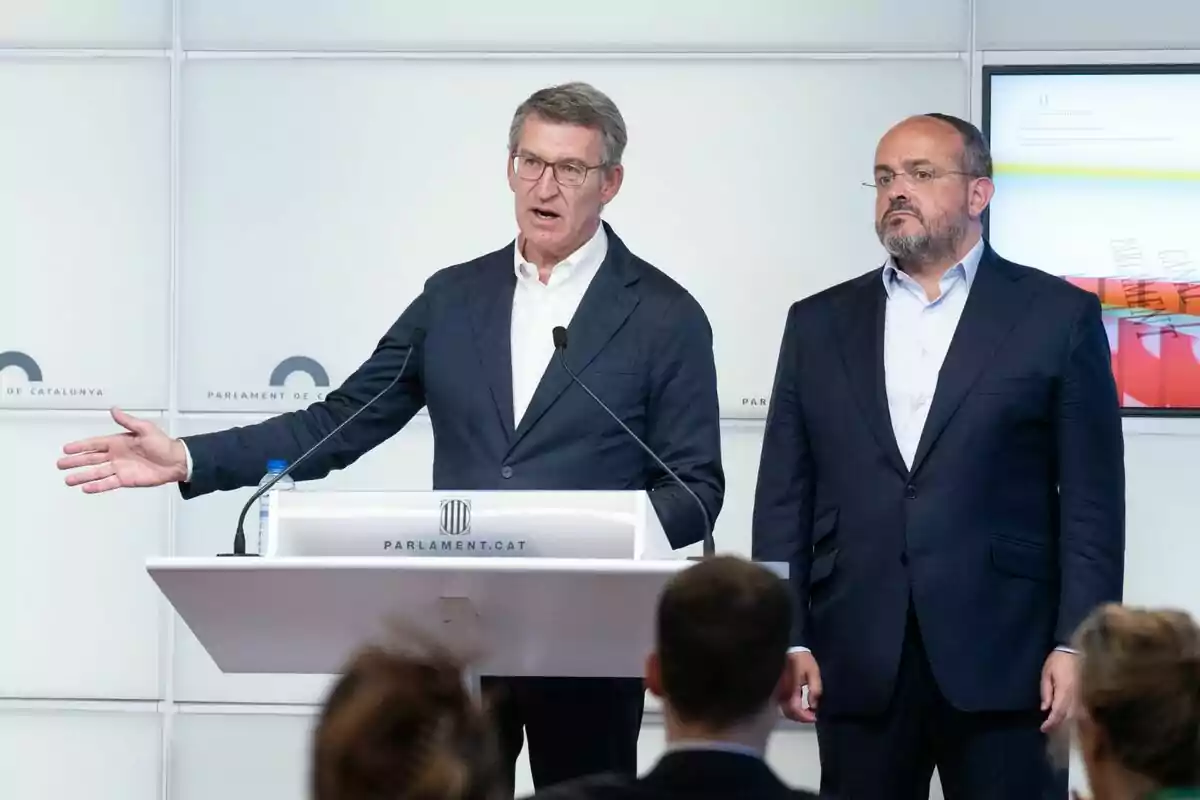
Puigdemont's challenge to the PP and Alejandro Fernández's warning from Catalonia
The circumstances revive the debate that Fernández brought to the table: 'not even to collect an inheritance with Junts'
Carles Puigdemont's challenge to PP has reignited political tensions between both parties and strategic moves. Junts has called on PP to negotiate with the former Catalan president outside Spain if they want to explore a motion of no confidence. In a statement, Junts has made it clear that the conservatives know the mechanisms to communicate with their party. They warn that conversations must take place outside Spanish territory "for well-known reasons."
This challenge comes at a time when PP is seeking a strategy to confront President Pedro Sánchez's government. However, from Catalan PP, Alejandro Fernández has previously rejected any kind of rapprochement with Junts. Fernández has been clear in stating that "with Junts, not even to collect an inheritance," keeping his firm stance of not making deals with the nationalists.

Fernández's stance: No need to give in for tactical reasons
If Alejandro Fernández has stood out for anything, it has been for pointing out that PP must keep its own discourse and confront without hesitation the "procesismo" represented by Junts. For him, any attempt at rapprochement or agreement with the nationalists would only fuel separatism and weaken Spain's unity. In fact, in his latest book, A calzón quitao, he emphasizes that PP's strategy must focus on defending national unity and avoiding agreements with those who promote division.
Alejandro Fernández has also warned that PP must not succumb to PSOE's pressure to push through a territorial reform without the corresponding social debate. He believes that the party's goal must be the defense of Spain's unity, not giving in to attempts to change the territorial model. In this regard, Fernández has criticized what he considers a "deliberate project" by PSOE to promote a "plurinational confederation":
But the situation is not like before
The current situation, however, is not the same as a few months ago. The current problem is that a president is entrenched in Moncloa while his party is sinking in corruption. In this context, Feijóo's decision to perhaps lead a motion of no confidence is a delicate move.

On one hand, there is the possibility of a tactical motion of no confidence to automatically call elections. On the other hand, the second possibility is that Feijóo gives in in some way to Junts's or PNV's demands. If anything is clear, it's that Junts and PNV keep Sánchez in power purely for regional interests; so, if PP made a better offer, they could change their stance.
This is when Alejandro Fernández's debate becomes relevant again, although its pragmatic translation is more indefinite. Should Sánchez be kept in power until 2027 just to avoid making deals with peripheral nationalists? This is the stance, by the way, that someone like Aznar has kept, who called for "maximum tension and a cool head" to avoid falling into the trap of a motion of no confidence with no future.
More posts: